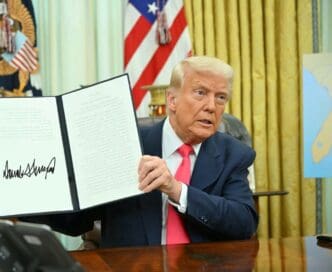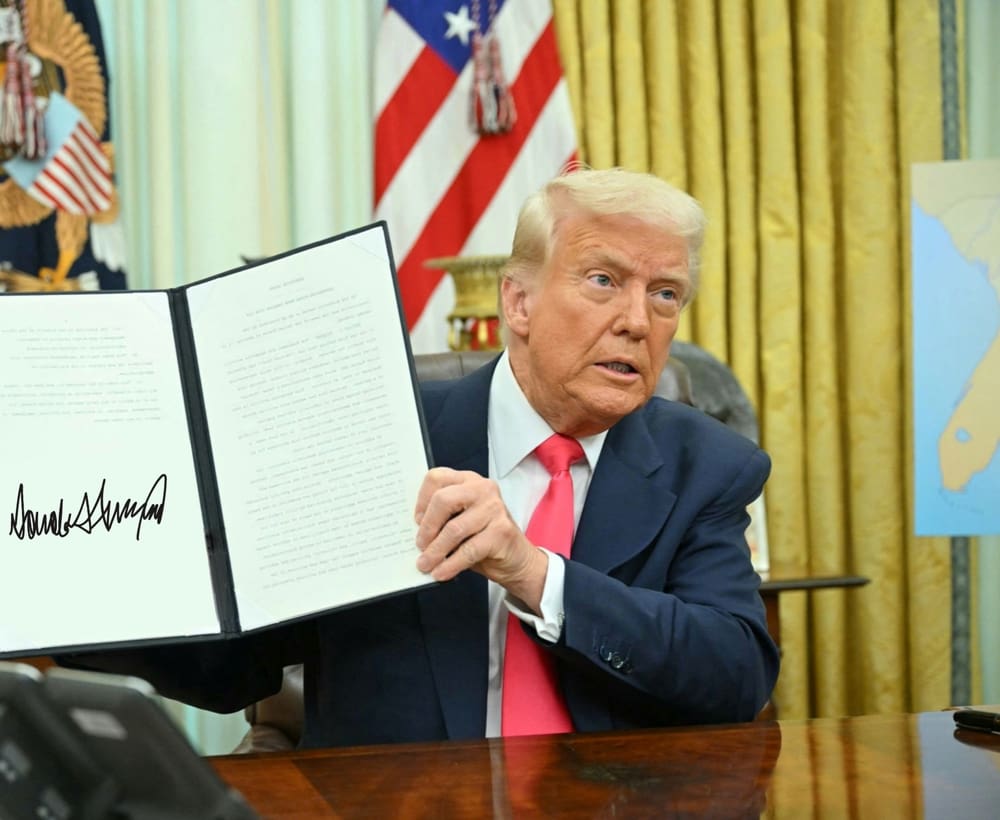KEY POINTS
- President Donald Trump has signed an executive order directing federal regulators to review rules that may discourage 401(k) plans from including alternative investments like cryptocurrencies and private equity.
- The move is intended to democratize access to asset classes historically reserved for wealthy individuals but has drawn concern from critics who warn of higher risks and fees for everyday savers.
- The executive order follows a previous action where the Department of Labor rescinded guidance that had urged “extreme care” for firms adding cryptocurrencies to 401(k) menus.
WASHINGTON – President Donald Trump has ordered federal regulators to explore rule changes that would make it easier for Americans to invest their retirement savings in cryptocurrencies, private equity, real estate, and other non-traditional assets, a move that could fundamentally reshape the 401(k) landscape.
The executive order, signed on Thursday, directs the Department of Labor to review existing regulations that may discourage employers from including these alternative investments in their workplace retirement plans. The stated goal is to democratize access to asset classes that have historically been reserved for wealthy individuals and institutional investors, while simultaneously unlocking a massive new pool of capital for firms in those fields.
However, the push has been met with immediate concern from critics, who warn that exposing everyday retirement savers to higher-risk, less transparent, and often higher-fee investments could jeopardize their financial security.
The move is the latest and most significant step in a long-running effort by the administration to open up the vast, multi-trillion-dollar 401(k) market to alternative assets. Most employers in the U.S. do not offer traditional pensions with guaranteed payouts. Instead, employees contribute to 401(k) investment accounts, where they bear the market risk. Government rules have historically held the firms that administer these plans responsible for offering prudent investment options, considering factors like risk, expense, and liquidity.
In the past, this has led employers to shy away from offering investments like private equity or crypto, which often come with higher fees, face fewer disclosure requirements than public companies, and can be difficult to convert to cash.
The president’s order gives the Department of Labor 180 days to conduct its review. While any changes are unlikely to be felt immediately, the financial industry is already preparing for the shift. Investment management giants like State Street and Vanguard have recently announced partnerships with alternative asset managers such as Apollo Global and Blackstone to begin developing private-equity-focused retirement funds.
This new executive order follows a series of actions from the administration aimed at paving the way for this change. In May, the Department of Labor rescinded guidance from 2022 that had urged firms to exercise “extreme care” before adding cryptocurrencies to their 401(k) investment menus.
The effort is a revival of a similar push during Trump’s first term, when the Department of Labor issued guidance aimed at encouraging retirement plans to invest in private equity. That initiative saw limited uptake due to concerns about potential litigation and was later revoked by the Biden administration. With this new, more forceful directive, the Trump administration is signaling its determination to finish the job, a move that could bring both new opportunities and significant new risks to the retirement accounts of millions of Americans.








